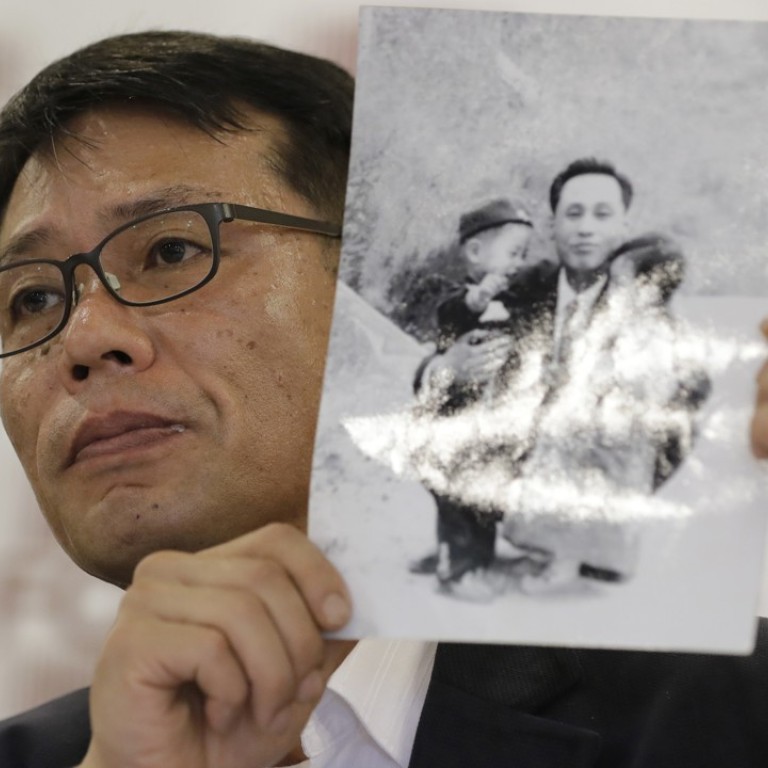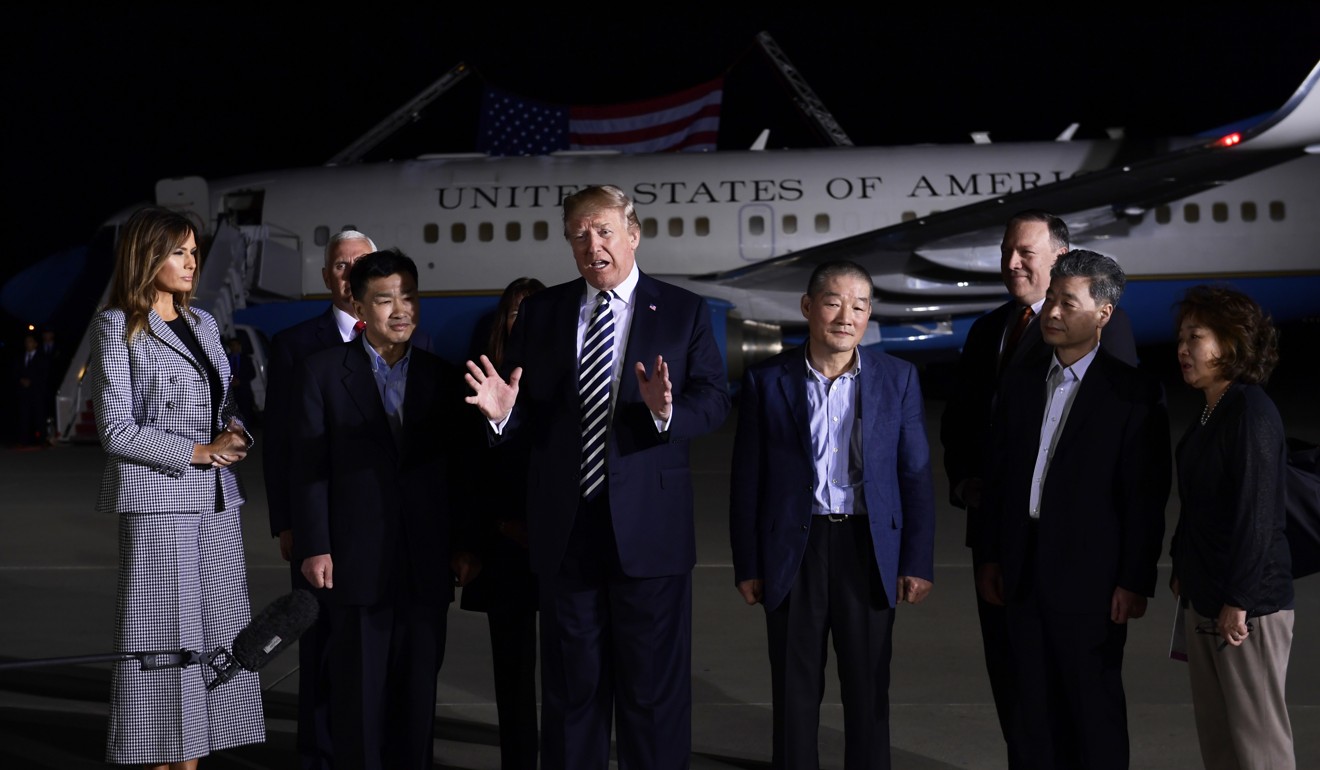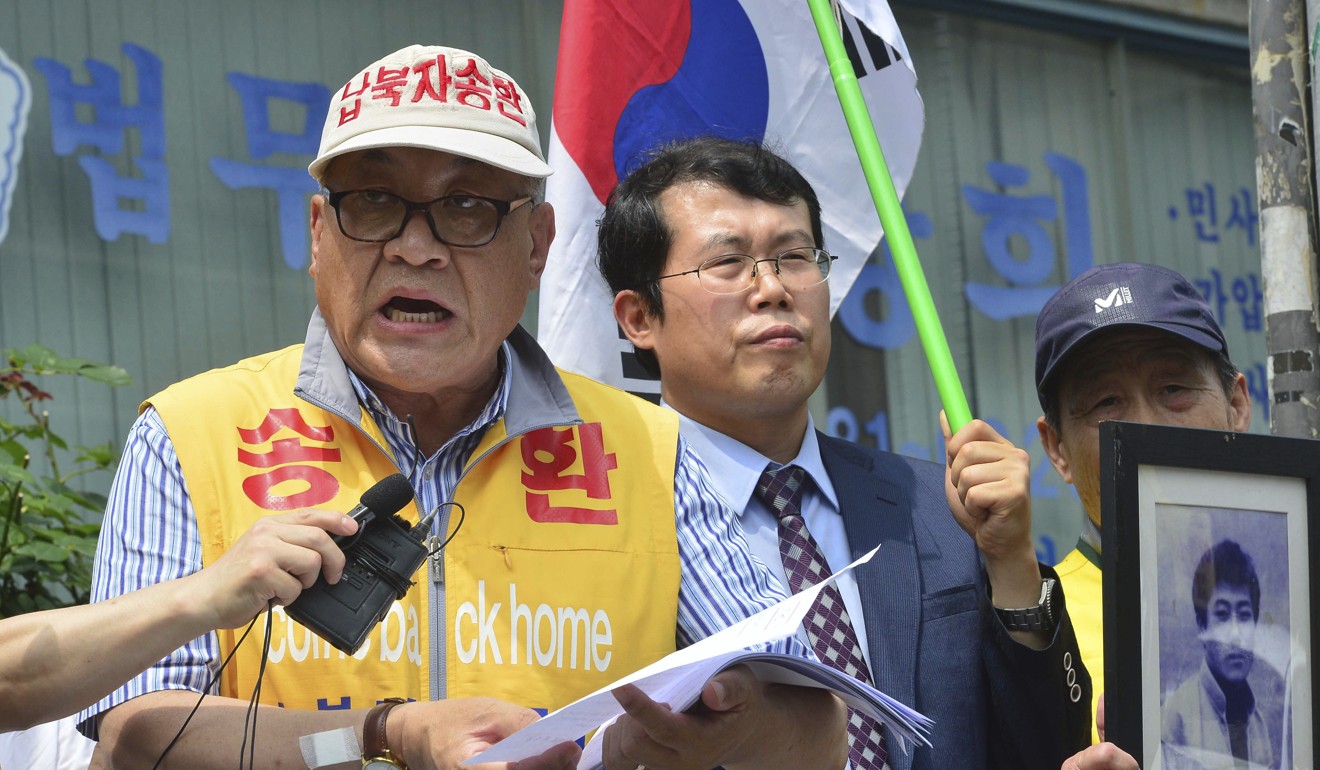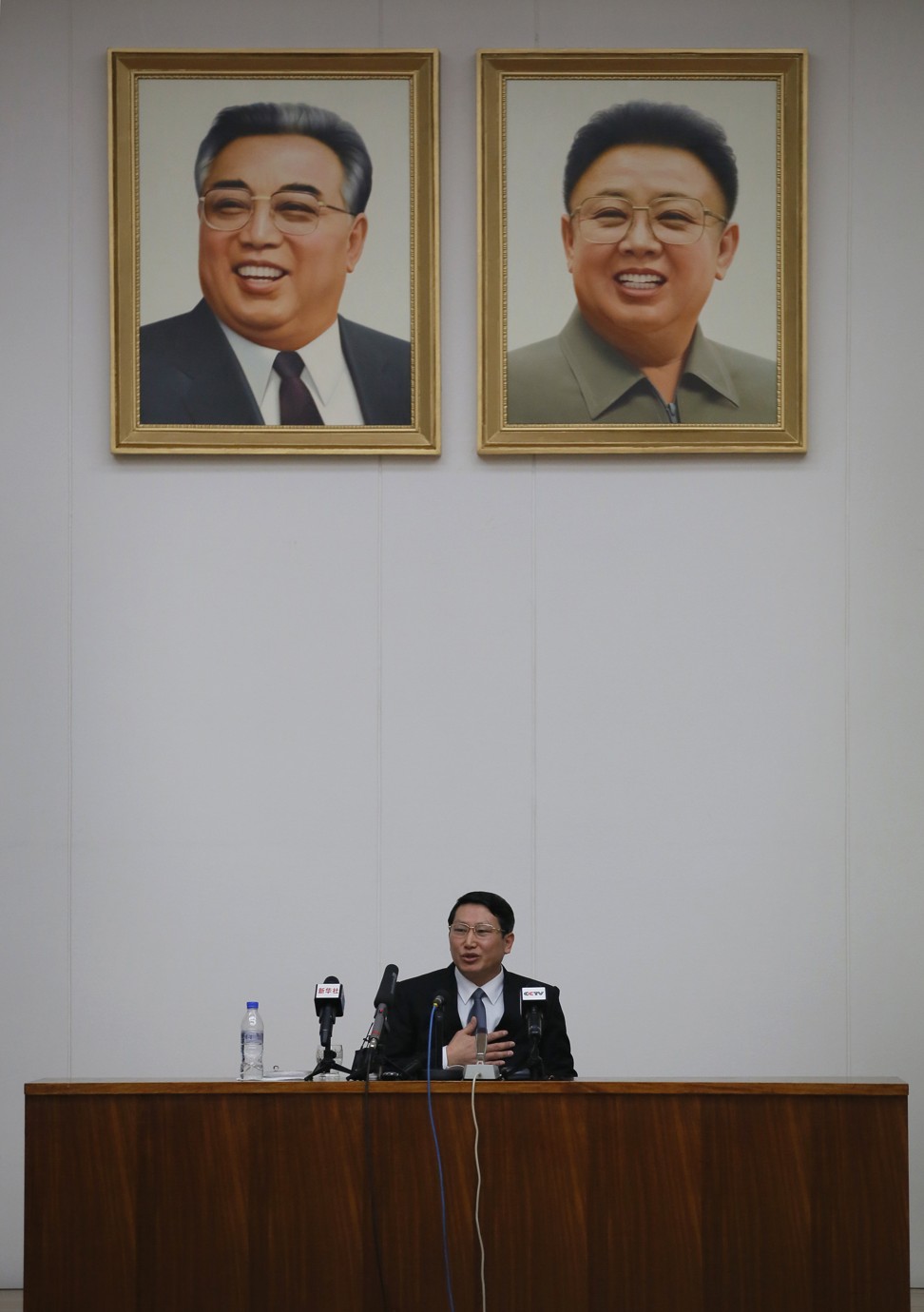
As they watch Americans go free, families of South Koreans kidnapped by Pyongyang feel frustrated and forgotten
‘Why is President Moon speaking out for American detainees and Japanese abductees while remaining silent about the hundreds of South Koreans who never returned?’
North Korea’s release of three American detainees offers some hope for the relatives of hundreds of South Koreans abducted over the years by the North.
But the families are also frustrated, feeling they’ve been forgotten amid a global diplomatic push to resolve a nuclear stand-off with Pyongyang
The families say their decades-long struggle to bring home their loved ones has been ignored by Pyongyang and successive governments in Seoul. Current South Korean President Moon Jae-in, they say, has sidelined human rights issues as he reaches out to the North.
Still, Wednesday’s release of the Americans raises the possibility that their cases will be addressed in future talks with the North, including a meeting between North Korean leader Kim Jong-un and US President Donald Trump that could happen in the coming weeks.
“My only hope is with President Trump,” said Hwang In-cheol, the son of a broadcast journalist whose flight was hijacked by a North Korean operative nearly 50 years ago. “I hope he puts the nuclear problem and human rights issue on the same table and solves them at once.”

While most were eventually released or successfully escaped back to the South, 516 never returned, as of 2015, according to Seoul’s Unification Ministry. It’s unclear how many are alive.
North Korea denies kidnapping the South Koreans and says they want to remain in the North.
The passengers
Hwang was two years old in December 1969, when his journalist father left for a business trip in Seoul. His Korean Air flight never reached its destination but instead landed near the North Korean city of Wonsan after being hijacked by a passenger South Korea later identified as a North Korean agent.
Two months later, North Korea said it would return all 50 people on board to the South. But the North sent home only 39 of them and claimed that the remaining 11, including Hwang’s father, wanted to stay. The detainees also included the plane’s captain, co-pilot and two flight attendants, who later appeared in North Korean propaganda broadcasts.
Hwang, 51, has spent much of his adult life campaigning for his father’s release. He said he was able to communicate with his father through brokers in December 2012 and arranged a plan to smuggle him out across the Yalu River into China. That was foiled by a temporary closing of the border following a North Korea nuclear test in February 2013. He said he last heard in 2016 that his father was still alive.
Hwang said he’s “happy and envious” about the release of the Americans, but also angry about what he calls official indifference in Seoul. While the United States aggressively pushes for the release of detained Americans and Japan regularly raises its citizens held in the North, South Korea has maintained a quieter stance.
The fishermen

Of the 516 South Koreans in the North, 457 of them were fishermen, according to the Unification Ministry. The mass abductions of South Korean fishermen slowed after the mid-1970s when the North began shifting its kidnapping targets to non-Koreans, especially Japanese.
That was also when South Korea began deploying anti-ship missiles and strengthening its fleet of patrol ships in its western seas, which made North Korean hijacking operations more difficult, analysts say.
Choi Sung-ryong, the 65-year-old son of a fisherman who was abducted in 1967, said the American detainees released this week should “feel fortunate they weren’t South Koreans.”
“Why is President Moon speaking out for American detainees and Japanese abductees while remaining silent about the hundreds of South Koreans who never returned?” Choi said. “He must openly and firmly raise the issue on live television when he visits Pyongyang for his second summit with Kim Jong-un later this year.”
Choi believes his father was executed in North Korea in 1970. Choi said he managed over the years to smuggle out 20 South Korean abductees and Korean war prisoners over the North’s border with China, but hasn’t been able to arrange a successful escape attempt in “seven or eight years.”
“While most of the prisoners of war would be dead by now, many of the post-war abductees are likely alive,” Choi said. “Most relatives don’t even dream about bringing home their loved ones any more; they just want to know if they are still alive.”
The missionaries
North Korea hates South Korean activists, many of them evangelical Christians who smuggle out defectors and send anti-Pyongyang literature and Bibles into the North through its border with China. South Korea says North Korea is holding at least three of them.

The North in 2016 announced the arrest of another South Korean, Ko Hyon Chol, who it accused of spying and trying to enter the North to kidnap children. South Korea also believes North Korea is detaining two North Korea-born citizens who had defected to the South.

